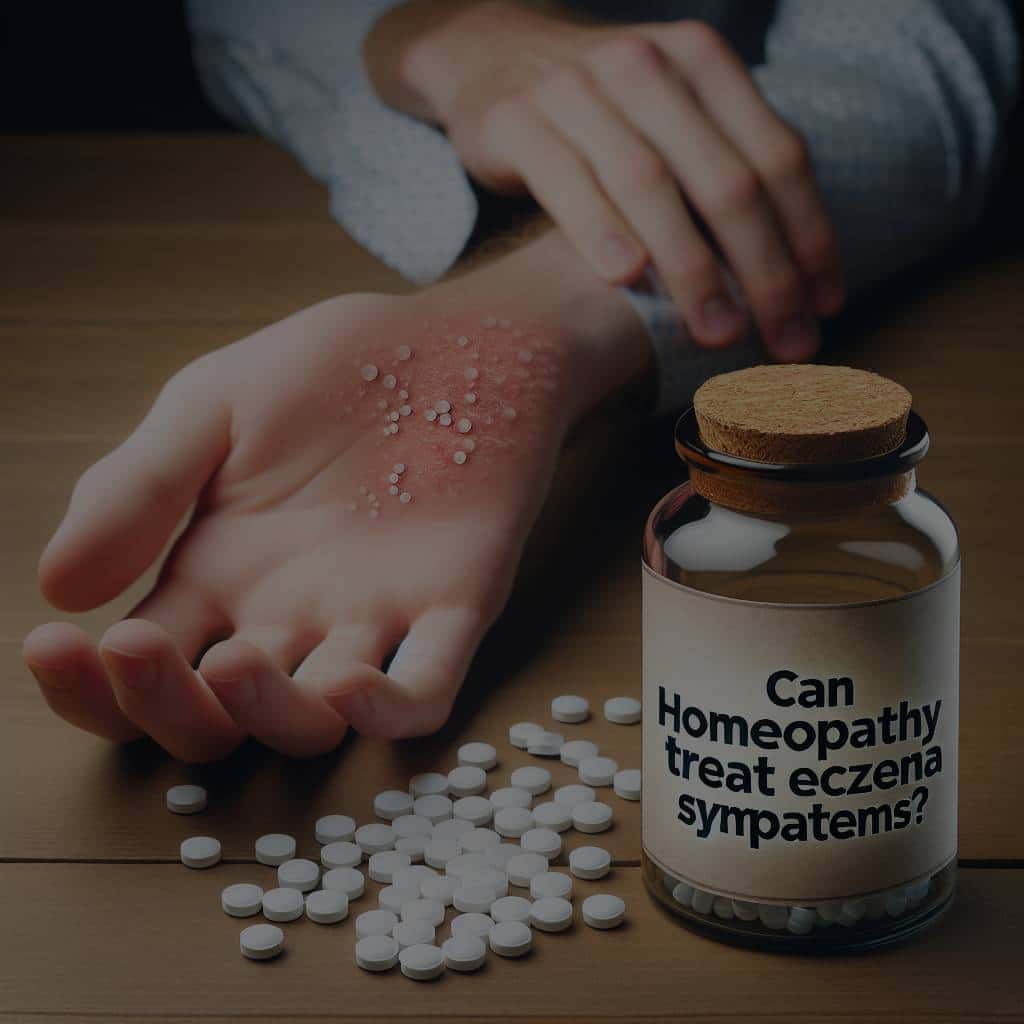Can Homeopathy Effectively Treat Eczema Symptoms?

When it comes to skin conditions, eczema, or atopic dermatitis, ranks among the most common. Affecting both children and adults alike, eczema symptoms can be distressing, causing itchy, dry skin, painful eruptions, and more. Modern medicine offers various treatments, from corticosteroids to immunosuppressants, but these can carry side effects and don’t always work for everyone. As you seek solutions for your health, you may be wondering about more holistic treatments, like homeopathy.
It’s worth exploring this question: Can homeopathy effectively treat eczema symptoms? To answer, we’ll delve into what eczema is, how homeopathy works, and what studies suggest about homeopathic remedies for eczema.
Dans le meme genre : How Can Sound Therapy Aid in the Management of Tinnitus?
Understanding Eczema and Its Symptoms
To understand how homeopathy might help treat eczema, let’s first grasp what this skin condition entails.
Eczema, also known as atopic dermatitis, is a chronic condition resulting in dry, itchy skin. It is more prevalent in children but can affect adults as well. Symptoms may include intense itching, redness, inflammation, and scaling. In severe cases, the skin may produce fluid-filled bumps that ooze when scratched.
A lire également : What Are the Health Implications of Microplastics in Drinking Water?
Eczema is not a contagious condition; it’s driven by an overactive immune system that responds aggressively to irritants. The resulting inflammation leads to the discomforting symptoms associated with eczema. Genetics and environmental factors also play a role in the onset and severity of this condition.
An Overview of Homeopathy
Homeopathy is a system of natural health care that has been in worldwide use for over 200 years. It treats each person as a unique individual with the aim of stimulating their own healing ability. A homeopath selects the most appropriate medicine based on the individual’s specific symptoms and personal level of health.
In contrast to conventional medicine, homeopathy operates on the principle of ‘similia similibus curentur’ or ‘like cures like’. This means a substance that can cause symptoms in a healthy individual can be used to treat similar symptoms in a sick person. For instance, a homeopathic remedy to treat insomnia might include a small amount of a substance that would induce sleeplessness in a healthy person.
Homeopathic Treatment for Eczema
Homeopathy offers a variety of remedies designed to help the body balance its immune response and heal the skin. The choice of remedy is individualized based on the specific symptoms presented by the patient.
One commonly prescribed homeopathic remedy for eczema is Graphites, used to treat dry, cracked skin. Sulphur is used when the skin is red and irritated, while Psorinum is given when intense itching is the primary symptom.
It’s important to note that not just the skin symptoms, but the overall health and disposition of the patient are considered when selecting a remedy. This individualized approach ensures the treatment is tailored to the patient’s unique needs.
What The Studies Say About Homeopathy And Eczema
Research into the effectiveness of homeopathy for treating eczema is ongoing, with some studies suggesting potential benefits.
A study published in the British Journal of Dermatology, for instance, found that homeopathy might reduce the severity of eczema symptoms over the long term. The study involved 118 eczema patients who received either homeopathic or conventional treatment for one year. The group receiving homeopathic treatment saw a greater improvement in symptom severity and overall quality of life compared to the conventional treatment group.
In a German study involving 225 children with atopic eczema, those treated with homeopathic medicine showed significant improvement compared to those given a placebo.
However, the existing body of research is not without contradictions and controversy. Some studies have found no significant difference between homeopathic treatment and placebo. Critics argue that the positive effects of homeopathy could be attributed to the placebo effect.
Final Considerations
While the evidence base is growing, it is not yet definitive. The effectiveness of homeopathy in managing eczema symptoms widely varies among patients. The individualized nature of homeopathic treatment, combined with the complex nature of eczema, could account for these differences.
It’s worth considering that homeopathy may best function as a complementary treatment alongside conventional therapies, rather than a standalone cure. While homeopathy may help alleviate some symptoms, it might not address all aspects of eczema.
If you’re considering homeopathic treatment for eczema, it’s critical to consult with a healthcare provider or a qualified homeopath. This ensures that the treatment is tailored to your specific needs and is safe to use with any other treatments you may be undergoing.
While the evidence for homeopathy’s effectiveness in treating eczema remains mixed, what is clear is the need for more research to fully understand its potential benefits and limitations.
Homeopathy and Eczema: A Complementary Approach
The complexities of atopic dermatitis, more commonly known as eczema, and the individualized nature of homeopathic treatment make it difficult to definitively confirm the effectiveness of homeopathy in treating eczema symptoms. Nevertheless, those who prefer natural treatments might see homeopathy as a promising complementary approach to conventional medicine.
Homeopathic treatment is fundamentally different from conventional treatment. While conventional medicine primarily aims at suppressing the symptoms, homeopathy works to stimulate the body’s own immune system to balance its response and eliminate the cause of the disease. This approach can potentially reduce the need for frequent medication and limit side effects.
In the context of eczema, homeopathic remedies could potentially help in reducing inflammation and the intensity of itching, which is often the most distressing symptom. While homeopathic treatment may not totally eliminate the need for conventional treatments such as corticosteroids, it might help reduce their dosage and frequency.
As with any form of treatment, it is crucial to remember that homeopathy is not a quick fix. It works on the principle of ‘individualization’, where a remedy is selected based on a comprehensive analysis of the patient’s physical and mental constitution. This process can take time and patience is key for long-term relief.
Importantly, homeopathy is not just about the medicine. The relationship between the practitioner and the patient, the assessment and understanding of symptoms, and the follow-up are equally critical. It requires active participation from the patient in terms of lifestyle changes and self-care.
Conclusion: Is Homeopathy the Answer to Eczema?
In conclusion, homeopathy might offer potential benefits for those suffering from eczema symptoms, but it’s not a magic bullet. It could be a useful complementary treatment that may offer relief from the distressing symptoms and improve the quality of life over the long term.
However, despite promising clinical trial results, it’s clear that more robust, large-scale studies are needed to fully understand the potential of homeopathic treatment for eczema. The evidence base is growing, but it’s not yet definitive.
Like any medical treatment, homeopathy should be undertaken with professional guidance. If you suffer from eczema and are considering homeopathy, it’s critical to consult with a healthcare provider or a qualified homeopath. They can ensure that the treatment is tailored to your specific needs and is safe to use with any other treatments you may be undergoing.
Remember, eczema is a complex condition and everyone’s experience is different. There is no one-size-fits-all solution. It’s important to find what works best for you, whether it’s conventional treatments, homeopathic remedies, lifestyle adjustments, or a combination of these.
While there are no easy answers, exploring different treatment options, including homeopathy, is a step towards managing this chronic skin condition more effectively.
